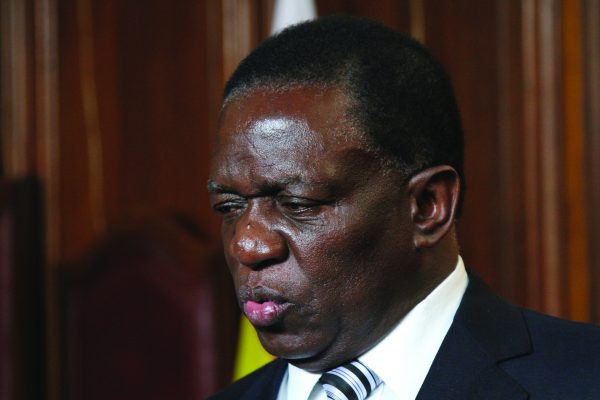
BY NQOBANI NDLOVU
President Emmerson Mnangagwa has given in to demands by traditional leaders, who want the government to take a back seat in the exhumation and reburial of victims of army atrocities.
Mnangagwa, who made the concession after meeting chiefs from Matabeleland and Midlands provinces in Bulawayo yesterday, initially wanted the government to take a leading role in the process targeting victims of the 5th Brigade buried in mass graves and mineshafts across the two provinces.
The meeting was a follow-up to another one he held with the chiefs in June 2019.
According to resolutions by the traditional leaders in consultative meetings in their areas of jurisdiction, the government cannot take a leading role in the reburials.
The chiefs also expressed frustration over endless consultative meetings without any involvement of the victims of the atrocities, commonly known as Gukurahundi.
“Going forward, his Excellency undertook to meet the national chiefs’ council led by Chief Charumbira next week to frame details on the next steps in moving the matter forward and also to provide comprehensive responses to ancillary issues raised by the chiefs in respect to their areas of jurisdiction and in their regions,” Local Government minister July Moyo said.
Moyo had earlier presented the chiefs’ position in the closed-door meeting with Mnangagwa.
- Chamisa under fire over US$120K donation
- Mavhunga puts DeMbare into Chibuku quarterfinals
- Pension funds bet on Cabora Bassa oilfields
- Councils defy govt fire tender directive
Keep Reading
“The consensus that emerged from the two reports (by chiefs Siansali and Nyangazonke) was that in addressing the issue of exhumations and reburials, care should be taken to respect different customs of each area and community,” he said.
“To that end, issues of exhumations and reburials should be led and guided by chiefs as the custodians of customs and culture in their areas of jurisdictions.”
Matabeleland North and South traditional leaders were represented by Chief Siansali and Chief Nyangazonke respectively.
Mnangagwa was already under pressure from pressure groups, victims and other activists against his involvement in the exercise as they argued he was conflicted since he was State Security minister at the time of the massacres.
He was also taken to the High Court in August by Ibhetshu LikaZulu pressure group, the opposition Zapu and Gukurahundi victim Charles Thomas, who also protested the same.
The High Court, however, ruled against them.
Last year, Mnangagwa also attracted the anger of Gukurahundi survivors following announcements that the government would fast-track exhumations of Gukurahundi victims.
Bulawayo-based Ukuthula Trust, an independent body of forensic archaeologists and forensic anthropologists, has also argued that families and not the state have a say in the exhumation and reburial of Gukurahundi victims.
Ukuthula Trust has exhumed scores of Gukurahundi victims since the late 90s.
In 2019, Ukuthula Trust exhumed the bodies of Justin Tshuma and Thembi Ngwenya in Tsholotsho’s Enkwalini community, who were killed by the Fifth Brigade in March 1983.
Ukuthula Trust has, however, said only a few thousand, if not hundreds, of remains of Gukurahundi victims can be exhumed as others lie in mass graves and mine shafts where exhumations are problematic and near impossible under international norms and standards.










